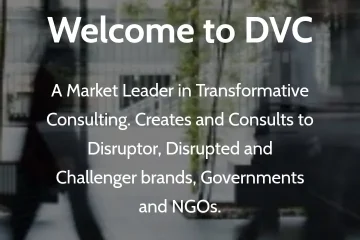DVC Consultants have created a framework that provides a comprehensive methodology for organizations to evaluate and prepare for AI integration. Here is a step-by-step process for companies to follow:
Leadership and Strategic Vision
Secure Executive Commitment: Gain active buy-in and championing of AI initiatives from C-level executives. Establish a dedicated AI leader for clear ownership.
Develop a Strategic AI Vision: Create a comprehensive strategic document outlining the organization’s AI vision, objectives, and guiding principles aligned with core business needs and values.
Build Change Management Capability: Assemble a specialized team to plan, implement, and support the organizational changes required for successful AI adoption.
Technological Infrastructure
Assess and Upgrade Infrastructure: Audit existing computing, storage, and networking capabilities. Identify gaps and establish a roadmap to meet AI infrastructure requirements, potentially leveraging cloud solutions.
Enhance Data Management: Implement robust practices for data collection, cleaning, labeling, storage, and access to ensure high-quality data for AI model training.
Cultivate Collaborative Ecosystems: Build relationships with vendors, academia, industry consortia, and competitors to access cutting-edge research, talent, and co-innovation opportunities.
Talent Development
Conduct Skills Assessment: Evaluate the organization’s current AI skillsets (data engineering, machine learning, AI product development) and identify gaps to address through recruitment and training.
Implement Educational Initiatives: Establish comprehensive programs to build AI literacy and encourage exploration across all teams.
Foster a Culture of Innovation: Nurture an environment that celebrates risk-taking, rewards innovative thinking, and provides “safe sandboxes” for experimenting with novel AI applications.
Strategic Implementation
Ensure Alignment with Business Objectives: Carefully plan AI projects to directly support core operational goals, revenue generation, cost optimization, and other key performance drivers.
Develop a Detailed Roadmap: Construct a comprehensive, phased implementation plan specifying milestones, deliverables, timelines, and success metrics, allowing flexibility for adaptation.
Plan for Scalability: Develop robust strategies for accelerating expansion from initial pilots to enterprise-wide AI deployment without performance bottlenecks.
Ethics and Compliance
Establish Ethical Guidelines: Define clear ethical AI guidelines aligned with organizational values to ensure adherence to moral and social principles during development and deployment.
Maintain Regulatory Adherence: Collaborate with legal experts to stay informed on emerging AI laws and industry standards, reducing risk exposure.
Implement Risk Management Strategies: Develop frameworks for identifying, evaluating, and mitigating potential AI risks spanning technology failures, cybersecurity, and reputational damage.
Performance Evaluation
Define Performance Indicators: Establish clear key performance indicators (KPIs) to quantify AI’s operational impacts and return on investment.
Implement Feedback Systems: Capture real-world feedback through surveys, user testing, and monitoring channels to refine AI models, interfaces, and processes.
Conduct Ongoing Impact Assessments: Evaluate AI’s broader transformative impacts across financial performance, customer experience, operational efficiencies, and other core business drivers.
Continual Improvement and Leadership
Conduct Regular Reviews: Establish recurring review cycles to recalibrate the AI strategy and implementation roadmap as conditions evolve.
Update Organizational Knowledge: Allocate resources for monitoring emerging AI research, applications, best practices, and competitive landscape.
Maintain Executive Engagement: Facilitate continuous two-way dialogue with executive leaders to provide organizational context, secure buy-in, and receive policy guidance.
Partner with AI Consultants: Supplement in-house capabilities by partnering with strategic AI consulting firms to access cross-industry best practices and specialized expertise.
By following the ARAFI methodology, organizations can comprehensively assess their AI readiness, develop strategies, implement AI solutions, and continually optimize their AI capabilities for long-term success.
If you would like to know how to implement this within your organisation contact q.anderson@dvcconsultants.com




0 Comments